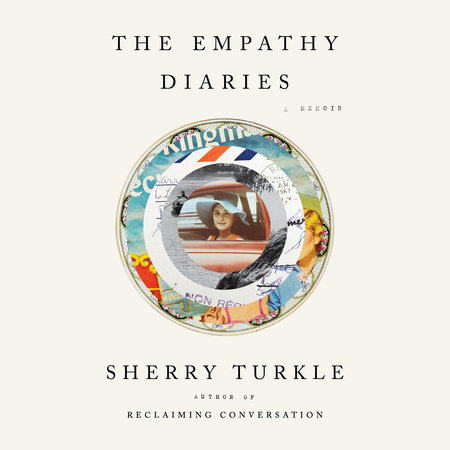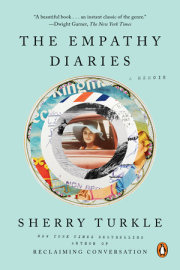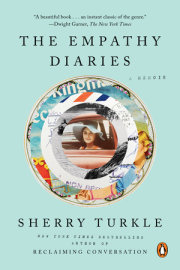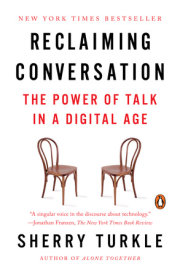During the long hours of my grandmother’s dying, I begin to read the Brooklyn telephone book. I look up the Charles Zimmermans. There are pages of them. I study the entries carefully. It’s August 1975; I’m twent yseven. For as long as I can re member, I’ve been both searching and not searching for Charles Zimmerman, my father, whom I haven’t seen since childhood.
Now I’m searching. In the back of one of my graduate school note books, I begin to copy down Charles Zimmerman addresses and telephone numbers, long lists of them. My mother is dead and my grandparents, with whom I stay when I’m in New York, have only the Brooklyn telephone book, no Manhattan directory. I know that in Cam bridge, Massachusetts, one of my Harvard professors has the Man hattan directory in his office. He once commented that everyone needs to have that directory at hand. At the time, this idea suggested a life of access and sophistication that thrilled me. Now, though, I feel a more practical need. When I get back to school, I ask his secretary if I may borrow his Manhattan book. She says no, but she lets me sit with it in his office, where I carefully copy out new Zimmerman can didates.
My grandmother dies in December. At LaGuardia Airport, flying back to Boston after her funeral, my plane is delayed. Standing next to a pay phone, I study the Queens directory and copy down the in formation for all its Charles Zimmermans. It never occurs to me that my father might live in the Bronx or have moved out of New York City altogether.
Nearly three years later, at a picnic table in Ipswich, Massachu setts, I tell my aunt Mildred, my mother’s sister, that I want to find Charlie, as he was known on the rare occasions when my family spoke of him. Can she help me?
Both during my mother’s life and long afterword, Mildred, my grandparents, and I had respected my mother’s wish to keep secret what she considered the great shame of her early divorce. We never spoke of my biological father. More than this, from the time I was five and my mother remarried—this was to Milton Turkle—my family lived under a regime of pretend. The rules were that although my legal name was Sherry Zimmerman, I had to say that my name was Sherry Turkle.
Mildred’s struggle over what to say is visible, painful to watch. She promised my mother, before she died, to keep me away from my fa ther. Finally, Mildred comes to a decision. “If you are going to do it, if you are decided, I should help you,” she says. “Charlie once worked as a teacher. Many years after your mother’s divorce, I met someone who said that he worked as a teacher.” With that, Mildred stares down at her feet. I feel my aunt’s love. She has given me what she can. I met with a private investigator, a former police detective. I no longer remember his name, just his thin black hair and shiny gray suit. In the spring of 1979, I visited his small, bare office on the West Side, furnished with only a wellused lamp, a coat tree, and a steel desk. Sitting across from me, he traced out, on a clean sheet of paper, the meager details I knew about my father: his name; that he and my mother were divorced in Florida in the early 1950s; that he might be named in my adoption proceedings beginning in the late 1950s; and the precious detail added by my aunt: he had worked as a teacher in the New York City public school system.
After Thanksgiving, the detective called. He’d found a Charles Zimmerman who once taught school in Queens, he said. This former teacher is my father’s age. There’s also a record of a Zimmerman di vorce in Branford, Florida, in 1951. The man’s birth date matches that of the teacher in Queens. I remember that as we spoke, I could only take shallow breaths. I was crossing a line. My mother had not wanted me to do this. Perhaps she’d had her reasons.
I wrote a letter. My husband, Seymour Papert, helped me. We rewrote it many times. The final version left Charlie a lot of room to turn me down.
Dear Mr. Zimmerman,
I am Sherry Turkle, the daughter of Harriet Bonowitz and Charles Zimmerman, born on June 18, 1948. I was adopted by Milton Turkle, my mother’s second husband, and thus carry his name. I have reason to believe that you are my father. I have not been in contact with my father for many years. If you are my father, I would like to meet with you and renew our acquaintance. Please be in touch in whatever way you find most comfortable. Thank you.
Sincerely,
Sherry Turkle
44 Tappan Street, Brookline, Massachusetts 617-267-xxxx
Some days later the phone rang. Seymour answered. He reached for me, slung his arm around my shoulder. He kissed me on the fore head as he passed me the phone. “Hello, is this Sherry Turkle?” The same voice asked if I had recently written to a Charles Zimmerman in Queens.
“Yes,” I say.
“This is your father.”
I haven’t spoken to Charlie in almost nineteen years. I saw him intermittently as a child, and then after Milton Turkle adopted me, I never heard from him again. Now he wants to see me. I grab a calendar. He gives me an address. We set a date for the following December weekend, just before Christmas.
Charlie answered the door. He looked like me. That’s what I no ticed first. The eyes. The mouth. I have his ears. His first words to me, right there at the door: “Did you find me through the New York Times?”
When I said, “No, I hired a detective,” he seemed disappointed. For a moment I imagined, almost giddy, that he’d been advertising for a lost daughter.
My father turned out to be a rogue scientist. Now a retired high school teacher, for decades he had worked out of his home and had written a book in which he claimed to disprove Einstein’s theory of relativity. Relentlessly, he then wrote to famous scientists, trying to get them to take his work seriously. He also advertised his selfpublished Einstein book in the back pages of the New York Times Book Review: “E=mc² is not correct. Queens high school teacher disproves Einstein. For more information write Charles Zimmerman.” He provided a post office box number. This is the advertisement my father thought had led me to him. His Einstein disproof is displayed on a table in the living room. It is small and dark and blue.
After such a long time of knowing nothing about him, it was good to find out that Charlie was alive, healthy, and not homeless. The apartment where we met reminded me pleasantly of my grandparents’ Brooklyn home. Here as there, an upholstered sofa and chairs were covered in plastic. There was a dining room set in a wood that looked so shiny that it could not possibly be real. It was some kind of space age cherry.
Charlie explained that this was the home of his “woman friend,” Lila. She’d been standing shyly behind him ever since he greeted me at the door, and now he introduced me. Lila is petite and pretty. I think of my mother. Tall and imposing, feminine and sociable. Char lie likes the company of women. Women like Charlie’s company. Lila encouraged us to sit down at the table, where food was already spread out. She said how happy she is that this day has come, that she has encouraged it often.
For lunch, Charlie told me that I will have the traditional: bagels, lox, cream cheese. Babka. He will have a kale shake. I knew he was a vegetarian because it was the first thing he mentioned after showing me his New York Times advertisement. A childhood memory came back to me—drinking a cantaloupe malted with him in Prospect Park.
As a child, among the few things I had heard about Charlie was that he was a chemist and that he had given up his right to be in con tact with me in exchange for being released from any obligation to pay child support. I think my mother let slip the chemist detail be cause it was something she could be proud of. I imagined her dream ing that a chemist husband would bring new status. She would visit the world of her parents and sister from a place of nicer things, she would be generous with them, her home could be their gathering place.
At our meeting, Charlie said that he had done graduate work in chemistry and also confirmed the story I’d been told about child sup port. My mother had wanted to erase her life with him, he said. He didn’t suit her, and her lawyer thought that the easiest way to get rid of him was to ask for what he couldn’t provide: money. You shouldn’t demand money from a father in exchange for letting him see his daughter, he said.
For a moment, I saw Charlie’s point of view. From there, I could imagine that he had actually been interested in me.
Then, over lunch, I began to take the fuller measure of my father. He couldn’t connect over a feeling or even a food. I told him I had missed knowing him. I had longed for news from him—on my birth days I had waited at the mailbox. He didn’t say he had missed me. It was “how your mother wanted it,” he said. At the table, he drank green juice but did not offer it to anyone else. Then he took small portions from several plates of pale cooked vegetables, none of these offered to the table either. I recognized only one: daikon. I’d seen it in Japanese restaurants.
As we ate—Lila and I, bagels and smoked salmon, Charlie, his eclectic array—I began to ask some questions and was relieved that he was willing to answer them. All these years, I wondered, had he re ceived any news of me? Yes, a little. He had a friend who had worked with my mother when she was a substitute teacher at Lincoln High School in Brooklyn. Through this connection, Charlie knew I had done very well in school. He walked over to a manila folder and pro duced a June 1965 clipping from a Brooklyn newspaper. It reported that I’d won a scholarship to Radcliffe, and it was accompanied by a photograph. There I am in my official senior year portrait, wearing a black Grecianstyle drape and staring into the middle distance some what dreamily.
I asked Charlie: “Did you think of writing me?”
“No,” he said. “I thought your mother wouldn’t have liked that.”
At this, I struggled to hold back tears. I told myself that saving the clipping was how he was able to communicate his feelings of con nection. But I had hoped for so much more. Then he told me that he knew that my mother died while I was in college. I don’t remember him offering condolences or saying anything about her being gone. His face, I recall, was still.
Charlie said he lost track of me after Radcliffe. But now he’s glad to know that I am a professor at MIT. Because, he said, he and I had been scientists together. We had done “experiments from the start.”
Before I could ask what he meant, Charlie was talking about his scientific passions. Some, he said, were triggered by my birth. How does language begin? Is it innate? Could he make a groundbreaking contribution to child development? Was he perhaps the next Skinner? I felt a shiver, fearing what might be ahead, but Charlie seemed not to notice.
When I was a baby, Charlie explained, whenever my mother was not around, he used me as an experimental subject. I felt sick and was afraid to ask for details. I remember thinking that I must force myself. And so I did. “What experiments?” I remember the moment when his story became too painful and I floated away from it, apart from the Sherry in the chair with the coffee cup on the table in front of her. I sat opposite my father and I could hardly breathe.
Finally I understood why my mother left him. Why Charlie never dared a holiday card or birthday call. Later, when I told Mil dred about my visit with Charlie, I didn’t mention the experiments. I reassured my aunt that Charlie had done me no harm during our visit. But I asked her what she remembered about my mother’s brief first marriage. She confided that very soon after the wedding, my mother was unhappy. Charlie was withdrawn and her new motherinlaw was intrusive and critical. Still, Mildred said, my mother chose her trou bles with Charlie over the shame of a separation. No one in my family was divorced. Or knew anyone who had been divorced.
But then, one Saturday afternoon in late spring 1949, my mother called and asked Mildred to pick us up. We were living with Charlie in Bayside, Queens, and my mother wanted to leave. She named an inter section close to our home, near some shops. Mildred said that she and my grandmother drove right out and found us waiting on the curb, my mother holding me in her arms, our hastily packed clothes in shopping bags at her feet. The drive to my grandparents’ apartment in Brooklyn was silent; no one asked any questions. Once home, my grandfather was happy to have us under his protection. When Charlie called after us, my grandfather got on the phone. My mother, he said, was getting a divorce.
As Charlie told me that afternoon: “That was the end of that.”
Copyright © 2021 by Sherry Turkle. All rights reserved. No part of this excerpt may be reproduced or reprinted without permission in writing from the publisher.







